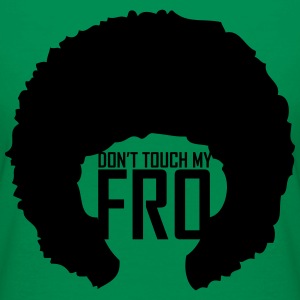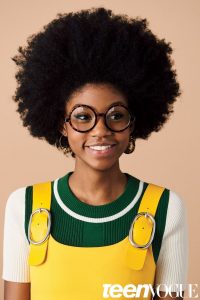
Have you every been walking around, minding your own business. then some random person comes up and runs their hands through your perfectly shaped fro. You stand there awkwardly waiting for the ordeal to end. We take the time to wash, condition, style, and flaunt our hair to any and everyone. But that doesn’t mean you can touch it. We enjoy the attention that it gives us, most of the time. But some women give a little more meaning to their hair other than just for the looks. For some black women, hair is more than just a fashion statement, so please just because you like it doesn’t mean you have to touch it.
- Heritage
For some black women, embracing or natural hair brings a certain connection with our culture. Being able to wear our hair how it natural grows on our head allows us to feel closer with the beautiful kings and queens who have gone before us. We use our hair to show that we still love and appreciate the path our ancestors made for us. When Africans were first brought to America they were forced to change to fit white culture and their beauty standards (Jahangir, 2015). We then had to recreate our culture and how to care for our hair. Our culture has been diluted and swept under the rug. We embrace our natural hair as a way of taking back control and showing that natural beauty should always be in style.
2. Freedom

Being able to wear my hair however I want gives me the feeling of freedom and control over my life. Given the fact natural hair isn’t always viewed as beautiful it allows us , as black women, to defy the norms without having to cause a huge scene. There are so many rules and regulations in life about clothes, actions, and life styles. So
we use hair as an outlet from all the over bearing defining factors in society. We use our hair as our own personal form of expression. Although there is currently different biases toward women and natural hair (Bates, 2017), but regardless we enjoy being able to wear our hair as we please
3. Self Control/Manners
When you’re standing around and random people come in, with no warning, and begin to poke and pull at you’
re hair is very alarming. You feel as if you have no control over yourself or what is being done to you. You feel like a animal at a petting zoo. You’re just stuck there waiting for the ordeal to end. Just ask, its not that hard. and if we say to not touch our hair please respect it and move on. If you take the time to ask we just might just let you. It’s about taking control of your body and taking back the power over your own life (Watson, 2016)
Having the control to make executive decisions over simple things like your hair seem like common courtesy but is very over looked luxury. Feeling as if you body is just a spectacle for people to gawk at isn’t ok. Our hair and culture represent different aspects of our lives. the symbolic interactionism between our hair and what we stand for is over looked. Symbolic Interactionism is how certain things represents others or having different meanings. Once people understand and respect the meaning we associate with our hair, then we can move forward in society to gain respect of bigger problems.
Watson, S. (n.d.). You Can’t Touch Solange’s Hair, but You Can Ask to Touch Mine. Retrieved April 17, 2017, from http://www.theroot.com/you-can-t-touch-solange-s-hair-but-you-can-ask-to-touc-1790857824
Jahangir, R. (n.d.). How does black hair reflect black history? Retrieved April 17, 2017, from http://www.bbc.com/news/uk-england-merseyside-3143827
Bates, K. (n.d.). New Evidence Shows There’s Still Bias Against Black Natural Hair. Retrieved April 17, 2017, from http://www.npr.org/sections/codeswitch/2017/02/06/512943035/new-evidence-shows-theres-still-bias-against-black-natural-hair